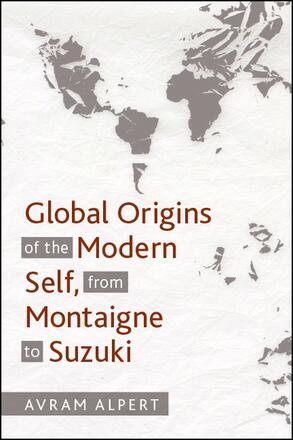
Global Origins of the Modern Self, from Montaigne to Suzuki
Alternative formats available from:
Explores how writers across five continents and four centuries have debated ideas about what it means to be an individual, and shows that the modern self is an ongoing project of global history.
Description
In Global Origins of the Modern Self, from Montaigne to Suzuki, Avram Alpert contends that scholars have yet to fully grasp the constitutive force of global connections in the making of modern selfhood. Alpert argues that canonical moments of self-making from around the world share a surprising origin in the colonial anthropology of Europeans in the Americas. While most intellectual histories of modernity begin with the Cartesian inward turn, Alpert shows how this turn itself was an evasion of the impact of the colonial encounter. He charts a counter-history of the modern self, tracing lines of influence that stretch from Michel de Montaigne's encounter with the Tupi through the writings of Jean-Jacques Rousseau into German Idealism, American Transcendentalism, postcolonial critique, and modern Zen. Alpert considers an unusually wide range of thinkers, including Kant, Hegel, Fanon, Emerson, Du Bois, Senghor, and Suzuki. This book not only breaks with disciplinary conventions about period and geography but also argues that these conventions obscure our ability to understand the modern condition.
Avram Alpert is Lecturer in the Writing Program at Princeton University.
Reviews
"This is an original and masterful synthesis of diverse sources and intellectual traditions. It is massively learned (ninety pages of endnotes) and engages in technical debates with other scholars, yet never loses the thread of the author's own central argument about the global context of modern ideas about the self. Alpert's writing is clear, incisive, and lively. " — H-Net Reviews (H-Buddhism)
"Altogether this very erudite and engaged book shows how fruitful the history of the self from a global perspective can be, as the book functionally expands and diversifies the set of canonical texts and offers different interpretations of some of them. The book will undoubtedly provide food for researchers from different fields who study the question of the self. " — Global Intellectual History
"Alpert's scholarship is impressive, offering a focused sweep of intellectual history and incisive readings of many important figures (and the scholarly literature devoted to them). He is a fantastic writer. His prose is direct and evocative, conveying complex ideas in clear and probing terms. This style transforms a long text into a relatively quick and, at times, gripping read. " — Jane Anna Gordon, author of Creolizing Political Theory: Reading Rousseau through Fanon
"Through textual and historical analyses and great interpretive abilities, Alpert shows persuasively that Montaigne, Rousseau, Emerson, Suzuki, and others—separately and together—are thinkers not of a Western (monopolizing the sense of modern) tradition, but of global, pluralist thought. His way of reading these thinkers can be a model for others interested in decolonizing and deracializing modern thought while preserving much of the canon with its present membership; with its male, Western-European and Anglo-American membership. But Alpert has done more. Through his arguments he has made room for Du Bois, Fanon, and Suzuki to be included in the canon. This is intellectually progressive and politically significant, and will make a fresh reading experience for many readers. " — Peter K. J. Park, author of Africa, Asia, and the History of Philosophy: Racism in the Formation of the Philosophical Canon, 1780–1830